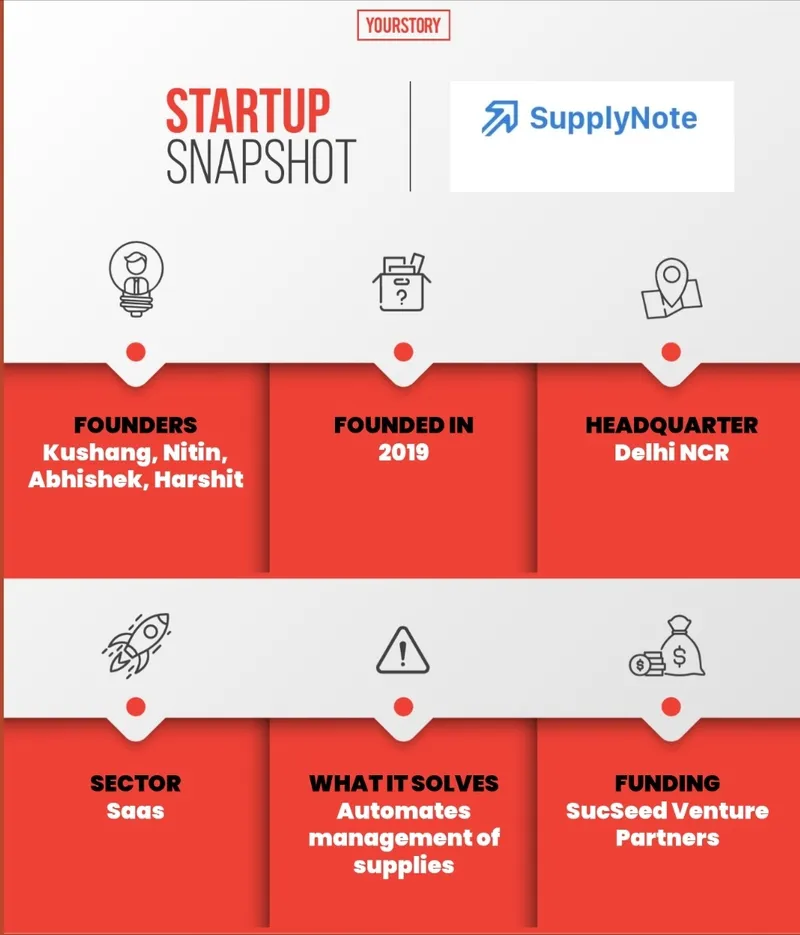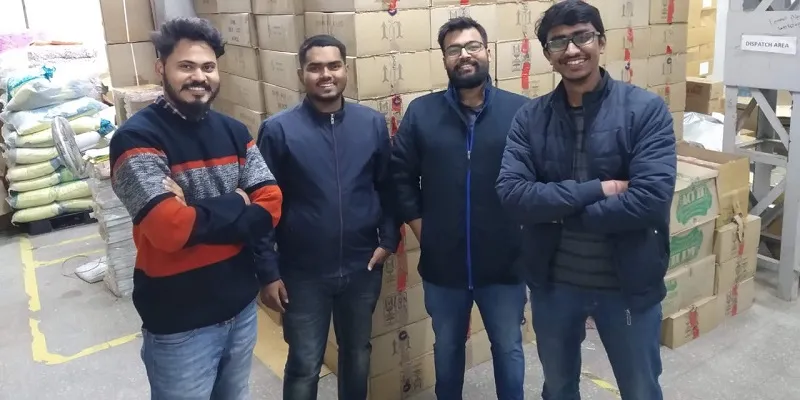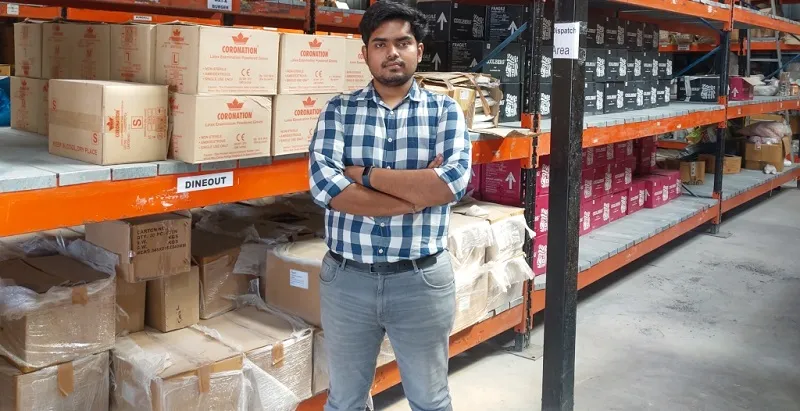How this startup received 1,200 dining establishments to board its source chain automation system
Opening a string of shipping-only dining places on aggregators this sort of as Swiggy and Zomato is fairly the development, but higher rents coupled with stock and provide chain mismanagement can shutter them just as rapidly. Which is exactly where SupplyNote checks in.
Founded by IIT Kanpur graduates Abhishek Verma, Nitin Prakash, Kushang, and Harshit Mittal in 2019, SupplyNote is a computer software-as-a-provider (SaaS) startup that digitises the inventory procurement procedures of dining places and automates supply chain management.
“Commonly, dining establishments experience enormous losses owing to mismanagement of inventory,” suggests Kushang, who makes use of only just one name.
“They also experience troubles while procuring material when they want to be absolutely sure of the greatest expense and availability. The present-day offline model is inefficient and expenditures the eating places about 8-10 % of the bottom line. With SupplyNote, food stuff companies these as dining establishments and bakeries can raise their bottom line.”

supplynote
Notes on a small business
The 4 founders very first achieved at IIT in 2011 and started out their entrepreneurial journey promptly just after graduating in 2015. They aided brand names run trackable under-the-line adverts — marketing outside of mainstream media — on food packaging items. They finally started providing foodstuff packaging materials to dining places and eateries employing their very own B2B ecommerce system.
Functioning carefully with these establishments assisted them fully grasp the wants of the cafe small business. They realised the dilemma lay in the procurement system rather than merchandise discovery. That turned the springboard for SupplyNote, which digitises the procurement procedure and automates steps this kind of as inventory management, digital buying, payment ledger administration, and provider and products discovery.
In accordance to Statista, India’s foodstuff and drinks industry is projected to record revenue of $7.6 billion in 2021. The earnings is expected to grow 10.4 per cent annually, ensuing in a projected market volume of $11.3 billion by 2025.
The marketplace is divided into organised and unorganised sectors. The organised sector, which accounts for 34 percent of the field according to Kushang, is SupplyNote’s target group.
“In the organised sector you have two formats, chain dining establishments and standalone restaurants. In the earlier couple of decades, there has been a paradigm shift in India and a main prerequisite for these eating places is standardisation of procedures, the two on the entrance and again finishes. It is here that we participate in a catalyst for companies.”
With SupplyNote, these types of places to eat can regulate inventory, area orders, and uncover profits general performance insights to increase the overall health of their business enterprise. “This typically lowers value of functions and interprets into higher earnings,” says Kushang.

Supplynote team
How the provider functions
Just after the client — a cafe or eatery company — indicators up and requests a demo on the SupplyNote site, the staff explains the use scenario and how the resolution would gain the institution.
To avail the remedy, the shopper pays a licence fee of about Rs 20,000 per year per outlet. SupplyNote then will get the cafe on board the platform by moving into all the needs, recipes, and stock facts.
“We sync the alternative with the PoS (stage of sale) devices of the cafe to have the information on their income,” suggests Kushang. “These specifics assist the solution to analyse and arrive at distinct amounts of stock SKUs (stock-keeping models), which are being procured by the restaurant. This being familiar with enables us to join with suppliers for needs immediately.”
The SupplyNote staff also provides training to cafe users on working with the alternative, claims Kushang.
Suppliers have their have SupplyNote dashboard, which demonstrates the order order. They can accept the invest in buy and convert it into an bill on the exact platform and ship the buy. In this article, automatic ledgers are made for purchasers and suppliers. “The cafe can pay its suppliers on the platform with out hassles,” states Kushang.
Progress curve
A Noida-dependent rolls cafe manufacturer was SupplyNote’s initially consumer in 2019. The cafe wished a offer-chain automation option. At current, the startup has a lot more than 1,200 shoppers on its platform.
SupplyNote is backed by a number of investors. The startup raised a $600,000 bridge spherical from SucSEED Undertaking Companions, Undertaking Catalysts, CIO Angel Network, 91springboard, GHV accelerator, Das Money, and SOSV. It has lifted 3 other rounds: seed of $115,000, bridge of $335,000, and $550,000 pre-collection. In full, the founders have increase $1.6 million.
The problem for SupplyNote has been to get compact corporations on board with its electronic options.

Kushang, SupplyNote
“They are essential to our vision of digitalisation,” claims Kushang. “However, the adoption of electronic remedies in their regular supply-chain methods is however very slow. They are however to embrace the digital revolution at a amount of degrees, which is a hindrance to our enterprise.”
The other issue has been to encourage people to move their functions on line, he provides.
SupplyNote would like to accomplish a transaction quantity of 100 million by the conclusion of 2021, for which it is strengthening its product sales channels to have interaction with a lot more shoppers.
The startup shut FY20 with $1 million in profits and expects to close the existing fiscal (FY21) with $1.4 million, increasing at 30 per cent.
SupplyNote competes with Eagle Owl, GetApp and Wooqer.
